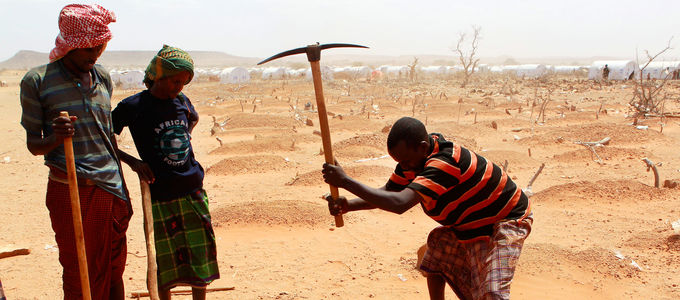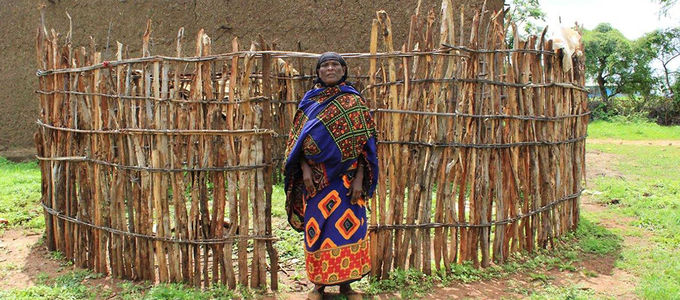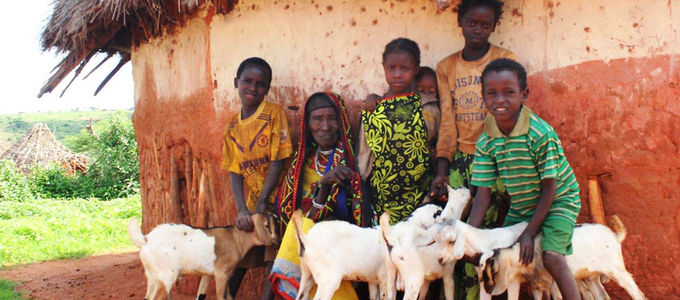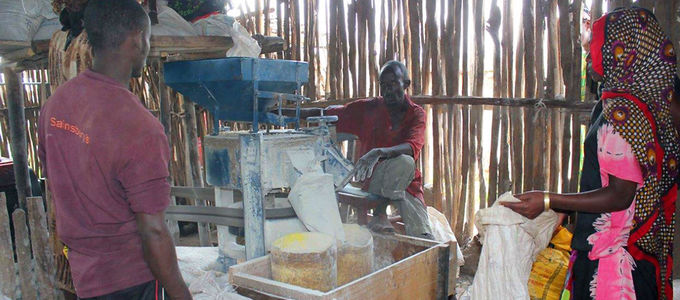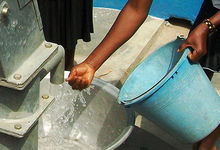Ten goats are enough for a new life
They are 60, 70, or even 100 years old. And in their fight for survival following the drought in Ethiopia they often had to fend for themselves. A project of the New Apostolic Church Southern Germany shows how important it is to help people help themselves.
It was one of the worst famines in recent decades: more than eleven million people in East Africa were dependent on help in the year 2011. At the time, the media was full of images of refugees and relief operations. But as soon as the initial emergency relief ended, the cameras left too, and the fight for survival began in earnest, because the drought had destroyed people’s livelihoods: mainly fields and livestock.
Old, sick, and nothing to live on
Jillo Wario Guyo is seventy years old and a widow. She is ill and lives in a relative’s kitchen. Galgalu Gebaba is about a hundred years old. At least he has a roof over his head, but no land, no livestock, and no income. For the same reason, Jillo Elema (60 years of age) has joined her husband as a day labourer and works in mining. Their children and grandchildren can hardly help, because they themselves can barely manage to make ends meet.
But the lives of these three women in southern Ethiopia have improved, as have the lives of another 7,000 older people and their families in the region of Borana. The humanitarian network HelpAge International has helped them to help themselves. The funds for this project to help secure their livelihoods were provided by the New Apostolic Church Southern Germany.
The village communities decide
Not the aid organizations decide who will receive support, but the villages themselves. In some cases all that is needed is a simple cash transfer, but in the great majority of cases the people need aid to help them rebuild their lives and secure a sustainable livelihood.
Jillo Wario Guyo received an amount of money, which she used for medical treatment and to build a house. Galgalu Gebaba received ten goats, which has allowed her to start a small breeding business. Jillo Elema is one of a group of thirty women who, thanks to a donated mill, have started operating their own mill.
Giving people back their dignity
The aid agency Missionswerk has provided 300,000 euros for the three-year project. But already before the project’s start in November 2012, the charity was committed in fighting against famine and donated 25,000 euros to Humedica in July 2011 for food and medical supplies; and 75,000 euros to HelpAge for water supply projects as well as pasture management from October 2011 to February 2012.
The big project has now been completed—and with sustainable effects. The aid provided has given the people far more than just being able to provide for themselves. “I am more confident and independent,” Jillo Wario Guyo declares. “I am proud and stronger,” Galgalu Gebaba says. And Jillo Elema is grateful that the start-up grant has “given me back my confidence and dignity”.
Article info
Author:
Date:
Keywords:
Andreas Rother
04.08.2016
Ethiopia,
Aid agencies,
International


